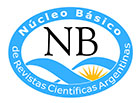BRASIL EN LA TRAMPA DEL DESARROLLO ESTANCADO
Keywords:
Brazil: Emerging forever? A case study of the mid-level development trap de Victor KrasilshchikovDownloads
References
Acemoglu, D., & Robinson, J. (2012). Why nations fail: The origins of power, prosperity, and poverty. Crown Publishing.
Alonso, J. A., & Ocampo, J. A. (2020). Economic traps and progress in middle-income countries: An introduction. In J. A. Alonso & J. A. Ocampo (Eds.), Trapped in the middle? Developmental challenges for middle-income countries (pp. 1-23). Oxford University Press. https://doi.org/10.1093/oso/9780198852773.003.0001
Brainard, L., & Martinez-Diaz, L. (Eds.) (2009). Brazil as an economic superpower? Understanding Brazil’s changing role in the global economy. Brookings Institution Press.
Bresser-Pereira, L. C. (2021). Brazil’s quasi-stagnation and East-Asia growth: A new developmental explanation. Structural Change and Economic Dynamics, 58, 500–508. https://doi.org/10.1016/j.strueco.2021.06.014
Bresser-Pereira, L. C., Araújo, E. C., & Peres, S. C. (2020). An alternative to the middle-income trap. Structural Change and Economic Dynamics, 52, 294–312. https://doi.org/10.1016/j.strueco.2019.11.007
Carneiro, R. (2018). Navegando a contravento: uma reflexão sobre o experimento desenvolvimentista do governo Dilma Rousseff. In R. Carneiro, P. Baltar, & F. Sarti (Orgs.), Para além da política econômica (pp. 11-54). Editora Unesp Digital.
Chiliatto Leite, M. V. (2019). Novos horizontes para o desenvolvimento com igualdade no Brasil: desafios em um mundo em transformação. In M. V. Chiliatto Leite (Org.), Alternativas para o desenvolvimento brasileiro: novos horizontes para a mudança estrutural com igualdade (pp. 11-31). CEPAL. https://repositorio.cepal.org/bitstream/handle/11362/44616/1/S1900253_pt.pdf
Gill, I. S., & Kharas, H. (2015). The middle-income trap turns ten. [Policy Research Working Paper, n. 7403], World Bank, Washington, DC. https://documents1.worldbank.org/curated/en/291521468179640202/pdf/WPS7403.pdf
Krasilshchikov, V. (2008). The rise and decline of catching up development: An experience of Russia and Latin America with implications for Asian “Tigers”. (2nd ed.). Entelequia.
Lula da Silva, L. I. (2023). Mensagem do Presidente da República. In Ministério do Planejamento e Orçamento, Secretaria Nacional de Planejamento. Plano plurianual 2024-2027: mensagem presidencial (pp. 4-5). https://www.gov.br/planejamento/pt-br/assuntos/plano-plurianual/arquivos/mensagem-presidencial-ppa-2024-2027/mensagem-presidencial-ppa-2024-2027.pdf
Mendes, M. (2014). Por que o Brasil cresce pouco? Desigualdade, democracia e baixo crescimento no país do futuro. Elsevier-Campus.
Paus, E. (2017). Escaping the middle income trap: innovate or perish. [ADBI Working Paper n. 685], Asian Development Bank Institute, Tokyo. https://www.adb.org/publications/escaping-middle-income-trap-innovate-or-perish
Paus, E., & Robinson, M. (2022). Innovación a nivel de las empresas, políticas gubernamentales y la trampa del ingreso medio: Enseñanzas de cinco economías latinoamericanas. Revista de la CEPAL, (137), 105–132. http://repositorio.cepal.org/handle/11362/48090
Salama, P. (2019). O Brasil em retrocesso? Cadernos do Desenvolvimento, 14(24), 177–203. http://www.cadernosdodesenvolvimento.org.br/ojs-2.4.8/index.php/cdes/article/view/393
Visentini, P. F. (2014). Brazil: From “sleeping giant” to emerging power. In F. de Castro, K. Koonings, & M. Wiesebron (Eds.), Brazil under the Workers’ Party: Continuity and change from Lula to Dilma (pp. 62-75). Palgrave Macmillan.
World Bank (2016). Poverty and shared prosperity 2016: Taking on inequality. https://www.worldbank.org/en/publication/poverty-and-shared-prosperity-2016
Downloads
Published
How to Cite
Issue
Section
License

This work is licensed under a Creative Commons Attribution-NonCommercial-ShareAlike 4.0 International License.
Manuscript acceptance by the Journal implies the simultaneous non-submission to any other journal or publishing house, and the non-exclusive transmission of the author´s patrimonial rights in favor of the editor, who allows the post-print version use, under the Licencia Creative Commnos Atribución-NoComercial-Compartir Obras Derivadas Igual 4.0 Internacional (CC-BY-NC.SA 4.0) (http://creativecommons.org/licences/by-nc-sa/4.0/deed.es). Articles can be shared, copied, distributed, modified, altered, transformed into a derivative work, executed and publicly communicated, provided a) the authors and the original publication (Journal, Publisher and URL) are mentioned, b) they are not used for commercial purposes, c) the same terms of the license are maintained.
It is hereby stated that the mentioned manuscript has not been published and that it is not being printed in any other national or foreign journal.
The authors hereby accept the necessary modifications, suggested by the reviewers, in order to adapt the manuscript to the style and publication rules of this Journal.









